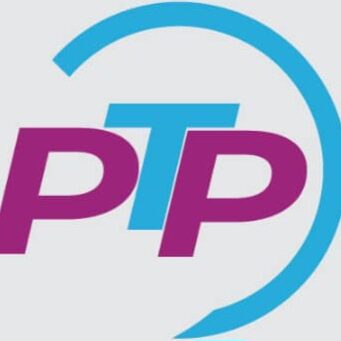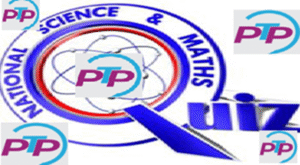GES 2025 Promotion Exams: Knowledge of the Ministry of Education (MoE) and the Ghana Education Service (GES).

Knowledge of the Ministry of Education (MoE) and the Ghana Education Service (GES).
MINISTRY OF EDUCATION
The Ministry of Education was established under the Civil Service Law 327 and under the PNDC Law 1993 with the mandate to provide relevant education to all Ghanaians.
The Ministry of Education is responsible for all policies on education, including apprenticeships and wider skills acquisition in Ghana.
They work to provide education that ensures opportunity is equal for all, no matter what their background or family circumstances.
The Ministry of Education works with some agencies and affiliates to facilitate the implementation of its policies and programmes.
Vision
- To provide relevant education to all Ghanaians at all levels to enable them to acquire skills that will assist them to develop their potential to be productive, promote technology culture at all levels of society to facilitate poverty reduction, and promote socio-economic growth and national development.
Mission statement
The Ministry of Education exists to carry out the Government’s vision of using quality education delivery to accelerate the nation’s socio-economic development through the following action plan:
- Expanding access to education at all levels of education
- Providing and improving infrastructural facilities
- Raising the quality of teaching and learning for effective outcomes
- Making education more relevant to national goals and aspirations by focusing on vocational and technical education
- Making tertiary education more cost-effective.
AIMS AND OBJECTIVES
The overall goal of the Ministry is to provide relevant and quality education for all Ghanaians, especially the disadvantaged, to enable them to acquire skills which will make them functionally literate and productive, to facilitate poverty alleviation and promote the rapid socio-economic growth of the country.
THE AGENCIES AND AFFILIATES UNDER MOE
- Ghana Education Service (GES)
- National Council for Curriculum and Assessment (NaCCA)
- National Teaching Council (NTC)
- Ghana Tertiary Education Commission (GTEC)
- National School Inspectorate Authority (NaSIA)
- Commission for Technical and Vocational Education and Training (CTVET)
- Center for National Distance Learning and Open Schooling (CENDLOS)
- Ghana Commission for UNESCO (UNESCO)
- Complementary Education Agency (CEA)
- National Service Secretariat (NSS)
- Student Loan Trust Fund (SLTF)
- Ghana Book Development Council (GBDC)
- Ghana Library Authority (GhLA)
- Ghana Academy of Arts & Sciences (GAAS)
- Scholarship Secretariat Ghana Education Trust Fund (GETFUND)
- West African Examination Council (WAEC)
ACHIEVEMENTS
- Resource allocation towards the FCUBE programme has been increased to ensure total implementation.
- New textbooks had been printed and distributed throughout the country.
- Basic and Secondary Education books covering the whole spectrum of their syllabus, including additional reading supplementary books totalling 6,762,390 of various assortments, have been distributed.
FUNCTIONS
For the purpose of achieving its objective, the Ministry performs the following functions:
- Initiate and formulate policy options on Education for the consideration of the government
- Initiate and advise on government plans
- Undertake such research as may be necessary for the effective implementation of government policies
- Review government policies and plans
- Coordinate and monitor the implementation of sector policies and strategies
RESPONSIBILITIES
Working towards achieving the overall goal of providing relevant and quality education for all Ghanaians, including the disadvantaged, to enable them to acquire skills, which will help make them functionally literate and productive, to facilitate poverty alleviation and promote rapid socio-economic growth.
This makes the Ministry responsible for:
- Expanding access to quality education at all levels of education.
- Providing and improving infrastructural facilities.
- Providing free education at the basic level.
- Making tertiary education more cost-effective
- Raising the quality of teaching and learning for effective outcomes, making education more relevant to national goals and aspirations by focusing on technical and vocational education
- Establish a well-coordinated and integrated system of scientific, technological, and social innovation for public-private sector partnership and development.
SERVICE
- Process all incoming mails after they have been received
- Guarantee that all clients are attended to on arrival at the Ministry’s Clients’ office.
- Timely provision of information to Clients, Stakeholders, and Partners on request
- Vet, process, and effect payments of claims after all relevant documents have been received
- Preparation of sector reports.
- Improve management for efficiency within the education sector.
- Improve the quality of teaching and learning at all levels
- Improve access to and help participants in education and training
- Decentralise the education management system
- Promote Accountability and transparency.
- Promote Equity
- Create a culture within which the advancement of scientific knowledge is valued as an essential component of national development.
Ghana Education Service (GES)
The GES has been mandated by the government of Ghana to be responsible for the implementation of national policies and programmes relating to pre-tertiary education of the government to ensure that all Ghanaians of school-going age, irrespective of their tribe, gender, disability, religion and political affiliations are provided with quality formal education and training through effective resource management to make delivery of education relevant to the manpower needs of the nation.
Vision
- GES seeks to create an enabling environment in all educational institutions and management positions that facilitate effective teaching and the efficiency of the attainment of the goals of the service.
Mission Statement
- To ensure Ghanaian children of school-going age are provided with quality formal education and training through effective and efficient management of resources to make education delivery relevant to the manpower the nation needs.
Functions of GES
- Implementation of approved policies and programmes
- Designing of curriculum
- Recruitment
- Promotion
- Discipline
- Ensuring the examination and certification of pupils and students
- Provision of teaching and learning materials
- Ensuring standard provision of physical infrastructure and equipment
- Ensuring the attendance of pupils and teachers
- Encouraging community participation
What is Governance and Management Structure?
Management organs /institutions in GES are put in place to run the day-to-day administration to ensure gov’t pre-tertiary educational policies and programmes are implemented through effective and efficient utilisation of resources.
| Organs / Institutions | Governance Bodies |
| Headquarters | GES Council |
| Distrct | District Education Oversight Committee |
| Senior High Schools | Board of Governors |
| Basic Schools | School Management Committee |
Role of the Ghana Education Service Council
The council shall have general control over the management of the service:
- It is the link between the Ghana Education Service and the ministry.
- Ensure the implementation of the functions of the service.
- Submit to the minister recommendations for pre-tertiary educational policies and programmes.
- Advise the minister on such matters as the minister may request.
The Structure and Function of the GES Headquarters.
Ges Council
- This is the highest decision-making body of GES.
- It is headed by a chairman who is appointed by the government.
- It has a secretariat, headed by a secretary.
Deputy Director General (Management Services):
- They are one of the deputies to the director-general.
- They are also appointed by the government in consultation with the GES Council.
- They also report directly to the director general
Deputy Director General (Quality and Access):
- They are one of the deputies to the director general.
- They are also appointed by the government upon the recommendation of the GES Council.
- They report directly to the director-general.
Apart from the director-general and his/her two deputies, there are other senior directors of ges divisional directors.
The following directors report to the director general through the deputy director in charge of quality and access.
- SPECIAL EDUCATION DIVISION
- SECONDARY EDUCATION DIVISION
- TECHNICAL/VOCATIONAL DIVISION
- BASIC EDUCATION DIVISION
- INSPECTORATE DIVISION
- CURRICULUM, RESEARCH AND DEVELOPMENT DIVISION (CRDD)
- TEACHER EDUCATION DIVISION
Directors of the listed below report to the director general through the deputy director-general in charge of management services.
The rest of the divisions are;
- Suppliers and logistics division
- Human resource management and development (HRMD) division.
- Administration and finance
NB:
- Directors are in charge of these remaining three divisions and also report to the director general through the deputy director-general in charge of management services, as you have in your district.
- The GES headquarters also has an audit unit, this unit reports directly to the director general of GES.
Organisational Structure of the Regional Education Office
The regional education office & regional director work with several people or officers who assist in their day-to-day work and the promotion of education delivery in the region.
Working with them closely facilitates your work.
Directorate
At the district education office, you work with several people or officers who assist in the day-to-day work in the promotion of education delivery in the district.
District Director of Education.
- The head of the district education office/directorate.
- They are held accountable for all transactions at the district education office.
- You report to the director-general through your regional director of education.
Front-Line Deputy Directors in Charge Are;
- Administration & Finance (A&F).
- Planning & Statistics.
- Human Resource Management and Development (HRMD).
- Monitoring And Supervision.
The four deputy directors report to the district director of education
Several officers work under the supervision of each front-line deputy director.
These officers report to the district director of education through their respective front-line deputy-directors.
The Educational Structure in Ghana.
The structure of education in Ghana, per the 2008 Educational Act 778.
The system of education shall be organised in progressive levels to be known as
- Basic Level Education
- Second Cycle Education
- Tertiary Level Education
Basic Level Education Shall Consist Of;
- Two (2) Years Kindergarten
- Six (6) Years Primary
- Three (3) Years JHS
Second Cycle Consist Of;
- Three (3) years SHS
- Technical
- Vocational
- Business
- Agriculture
- Or appropriate apprenticeship training of not less than one year
Tertiary education shall consist of education provided in the university, polytechnics, and colleges of education established by an act of parliament or accredited by the national accreditation board.
Inclusive Education
Inclusive education involves putting children with disability and without disability in the same class to participate and learn.
Benefits of Inclusive Education
- Children develop a positive understanding of themselves & others.
- Families’ vision of a typical life is realised
- Children learn important academic skills
- Children learn on their own
- Children learn to feel for others and have the opportunities to make friends
- The abled will help the challenged.
The Challenges of Inclusive Education.
- Teacher needs more time to attend to the challenged children.
- A teacher needs to be skilful to handle both.
- Bold teaching and learning materials are needed to accompany teaching.





3 thoughts on “GES 2025 Promotion Exams: Knowledge of the Ministry of Education (MoE) and the Ghana Education Service (GES).”